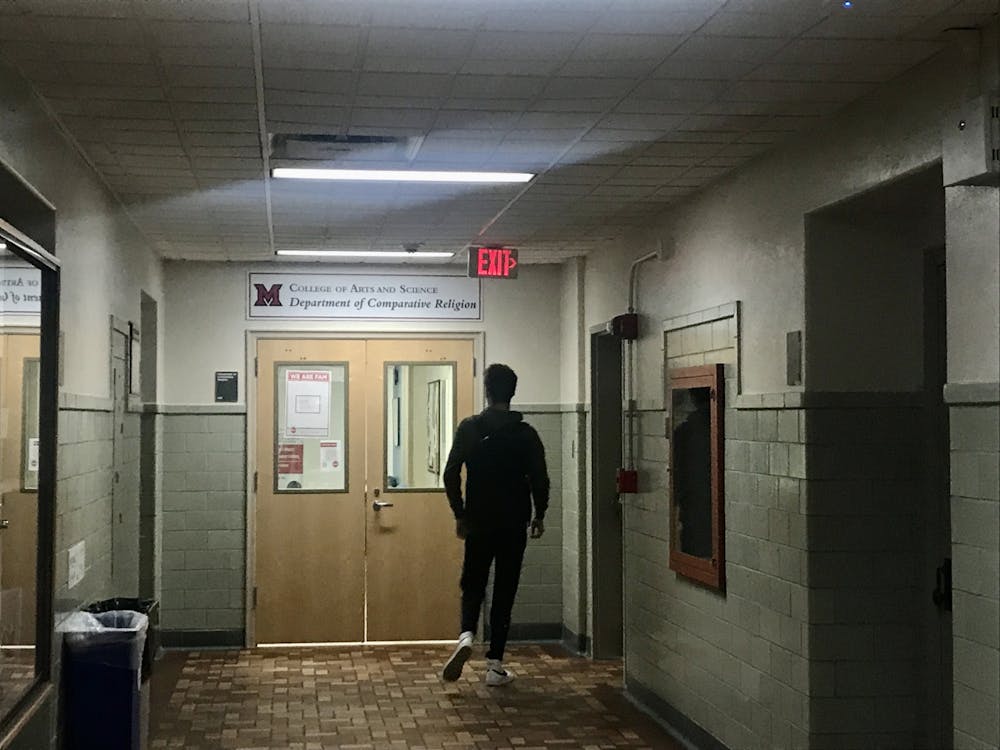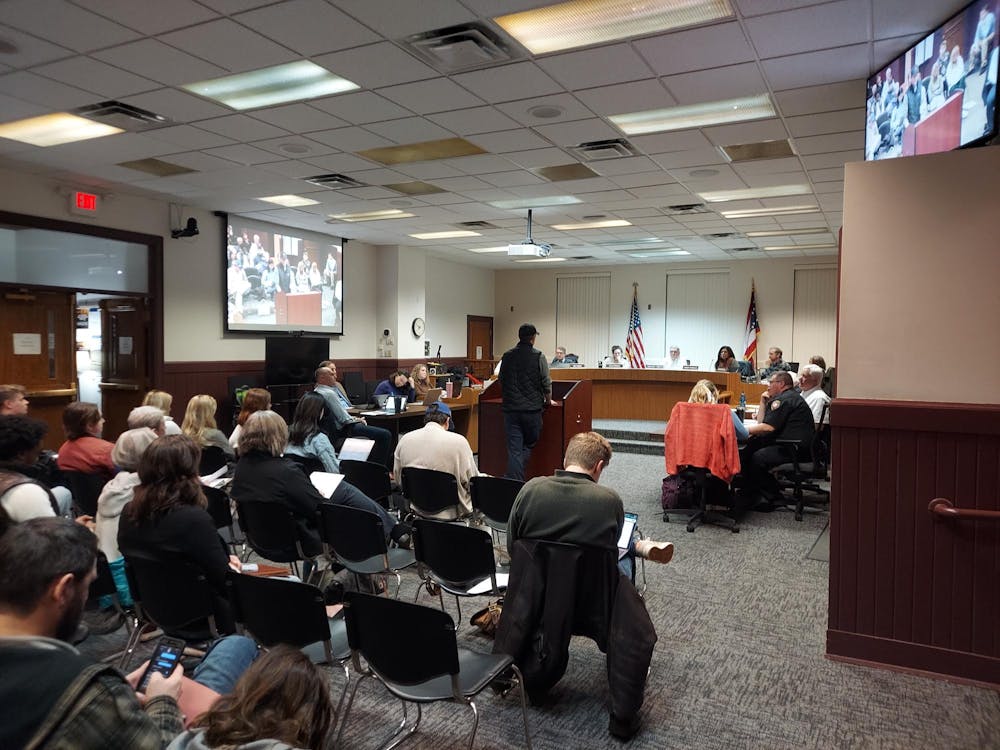As Nathan French sits in his small but personalized Upham Hall office surrounded by piles of books and papers, he thinks of more than the next class he has to teach.
He thinks of the future of the nearly 100-year-old comparative religion department that he calls home. He thinks of the eight students majoring in comparative religion. He thinks of his future at Miami University.
All of these thoughts popped up when the Office of the Provost asked 22 majors to reconsider their place at Miami. Since the provost's request, comparative religion announced its proposal to close its department, which French and department chair James Hanges presented at the Feb. 12 University Senate meeting.
The department’s plan proposes that the current religion majors be taught out by the 2029 spring semester. Before then, the current religion minor will be revised to meet new needs while the existing faculty are dispersed into other departments to teach similar material to their current curriculum. At the same University Senate meeting, French and Hanges proposed the possible creation of the Center for the Study of Religion, Policy and Public Life that coincides with a certificate of the same name.
Issy Byrd, a first-year diplomacy and global politics and comparative religion double major, added a religion major last semester, two days before she received notice that it would be eliminated. While she knows why the major is in danger, she said she hopes students can study religion in some capacity in the future.
“It’s definitely a little disheartening to know that it’s being taken away, but I understand why; I’m not oblivious to the fact that I don’t know any other [religion] majors … But I think putting something else in the place of it is a great alternative,” Byrd said.
Despite the uncertainty of the department’s future, French said he sees a spot at Miami for both the faculty and information that the department holds.
“What makes the academic study of religion unique is that it's interdisciplinary,” French said. “So for all of us in the department, we have varying teaching and research interests that would fit in a lot of different programs.”
Despite his hope, French said that it’s “frightening” to go through the process of closing the department.
Even with the possible upending of his future, French said he understands the reality of Miami’s decision and the reasoning that went behind the upcoming changes.
“The material conditions that built the modern universities around us really don't exist anymore,” French said. “We are competing with other institutions in ways that are changing all the time. And I think looking at the decisions that I've seen from the Office of the President, the Office of the Provost, the Board of Trustees, I understand and can relate to and have a lot of empathy for the decisions that they're making.”
The changes that the 22 majors are facing are reported to save $1.2 million in the short term by reducing the number of contingent and visiting faculty in each field, according to a report given to University Senate on Feb. 26.
Enjoy what you're reading?
Signup for our newsletter
At that same meeting, Senior Associate Provost Carolyn Haynes said there is value in Miami offering a wide variety of classes and majors to all students.
“We know that a major prepares you not for your first job, but for your lifetime,” Haynes said. “We need a liberal education in order to really prepare you for resiliency, for the changing career paths.”
Haynes said the changes come with the shifting landscape of higher education and that student demand is the driving force behind the retrenchment. She said students are now asking for classes that act as parallels for the jobs that they want or coincide with their major more cohesively.
“Our students want more than one major and want a more customized constellation of different kinds of programs and credentials that are aligned to their personal and professional goals,” Haynes said.
This was true for Byrd, who added the comparative religion major because it aligned with the topics discussed in her diplomacy and global politics classes.
“I’m not sure if they’ve already looked at combining majors or things like that, but [if they did] that wouldn’t be a total elimination of that course,” Byrd said.
In Irvin Hall, the Department of German, Russian, Asian, and Middle Eastern Languages and Cultures (GRAMELAC) has found a solution to a problem that both it and the French, Italian and Classical Studies department faces. The two departments submitted a plan to combine the majors that are currently offered into one major with multiple concentrations that will retain all faculty while teaching the same curriculum.
Even with the preservation of staff and classes, Mila Ganeva, GRAMELAC department chair, said issues come with combining multiple majors across a wide array of subjects.
“It is a challenge to maintain the brand of the individual majors that have been attractive to the students,” Ganeva said. “[The major] is going to be called a different name, but that doesn't mean that you're not going to study the things that you want to study.”
Within the changing state of higher education, Ganeva said a liberal arts education is important for everyone across campus.
“Miami is a liberal arts institution,” Ganeva said, “and our students, whether they major in engineering or computer science or health sciences or nursing or business, do need the humanities foundation for all kinds of ethical and humanistic choices they're going to do within their professional lives.”




